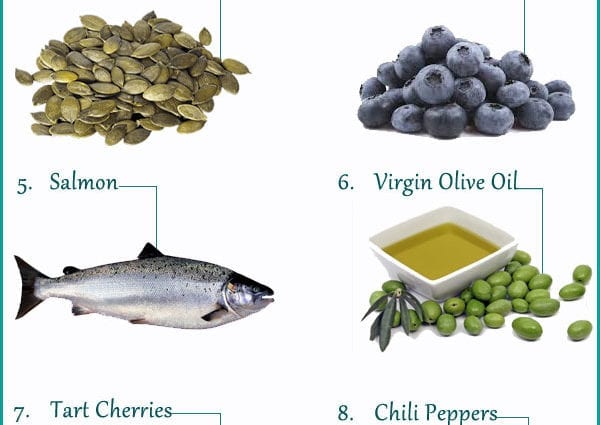Millions of people around the world suffer from chronic pain. The reasons can be different: old injuries, migraines, autoimmune diseases, liver diseases, irritable bowel syndrome, inflammatory diseases, arthritis, general overwork, etc.
These pains are debilitating, causing suffering, anxiety and depression. They interfere with the enjoyment of life, reduce self-esteem, deprive self-confidence, disrupt sleep and prevent relaxation. Not to mention the fact that in pain, we work worse and cope with solving even simple problems.
Pain relievers can certainly provide quick and effective pain relief, but in the long term they can put a lot of strain on your health. For example, they increase the risk of developing gastritis and stomach ulcers, alter the intestinal flora, provoke constipation and diarrhea, inflammation, liver and kidney damage. They can even be fatal if the rules for their admission are violated.
Fortunately, nature offers us many natural anti-inflammatory foods, herbs and spices that have analgesic properties and can generally promote health and tissue structure. If you are in pain, try to consume the following foods, herbs, and vitamins as often as possible.
Natural pain relievers
- Turmeric
Thanks to curcumin, this anti-inflammatory spice can relieve joint pain and reduce inflammation, including for fibromyalgia and other inflammatory conditions. Here’s a recipe for a turmeric drink you can make at home.
- Cherry
Compounds in cherries called anthocyanins help reduce inflammation and block pain signals. One study shows that tart cherries also help relieve muscle pain after exercise, reducing the likelihood of muscle damage.
- Ginger
Ginger is an effective anti-inflammatory agent for the relief of migraines, arthritis, and muscle pain. In one study, it was found to be as effective as ibuprofen in relieving recurrent pain. One of the best ways is to add fresh ginger to juices and smoothies.
- Fish fat
Eating fish high in omega-3 fatty acids helps relieve pain by improving blood flow and reducing inflammation in nerve and muscle cells. Fish oil has been shown in research to be equivalent to ibuprofen in relieving arthritis and possibly other types of pain. Plant sources of omega-3s are flaxseed, chia seeds, hemp seeds, and walnuts.
- Dog-rose fruit
More than 30 studies confirm the ability of rose hips to relieve pain, including those caused by arthritis. One showed that significant reductions in pain and drug use were achieved after 3 weeks. And you can feel that weakness and stiffness go away after 3 months of treatment. Rosehip can be taken in tea or powder form, as well as in capsules.
- Pineapple
The bromelain in pineapple helps reduce inflammation and is used as a post-traumatic remedy. Just half a cup of pineapple a day can help reduce pain significantly.
- Magnesium
This electrolyte supports muscle and nerve function. It can be very effective for restless legs syndrome, muscle tension and pain, fibromyalgia, migraines, cramps, and tingling. This essential nutrient is found in dark green leafy vegetables, legumes, nuts and seeds, and dark chocolate.
- Vitamin D
A new study from the British Society of Rheumatology suggests that low levels of vitamin D in the body are associated with chronic pain that is widespread. Musculoskeletal pain is a recognized symptom of acute vitamin D deficiency.
If you are in pain, there are some foods you should avoid, including:
- Nightshade vegetables
In cases of arthritis, nightshade vegetables – potatoes, tomatoes, eggplants, peppers, and chili peppers – can increase pain and discomfort.
- Gluten and dairy products
Some people who suffer from autoimmune diseases begin to feel better by eliminating possible food allergens, such as gluten and dairy products, from their diet. Conduct a six-week experiment: you may experience a reduction in pain and discomfort. Other allergens can help you find the right detox to reduce pain and inflammation.
- Processed foods
Processed foods increase pain and inflammation, especially refined flour and sugar and processed hydrogenated fats, so they should be avoided and a natural, nutritious diet should be followed.










